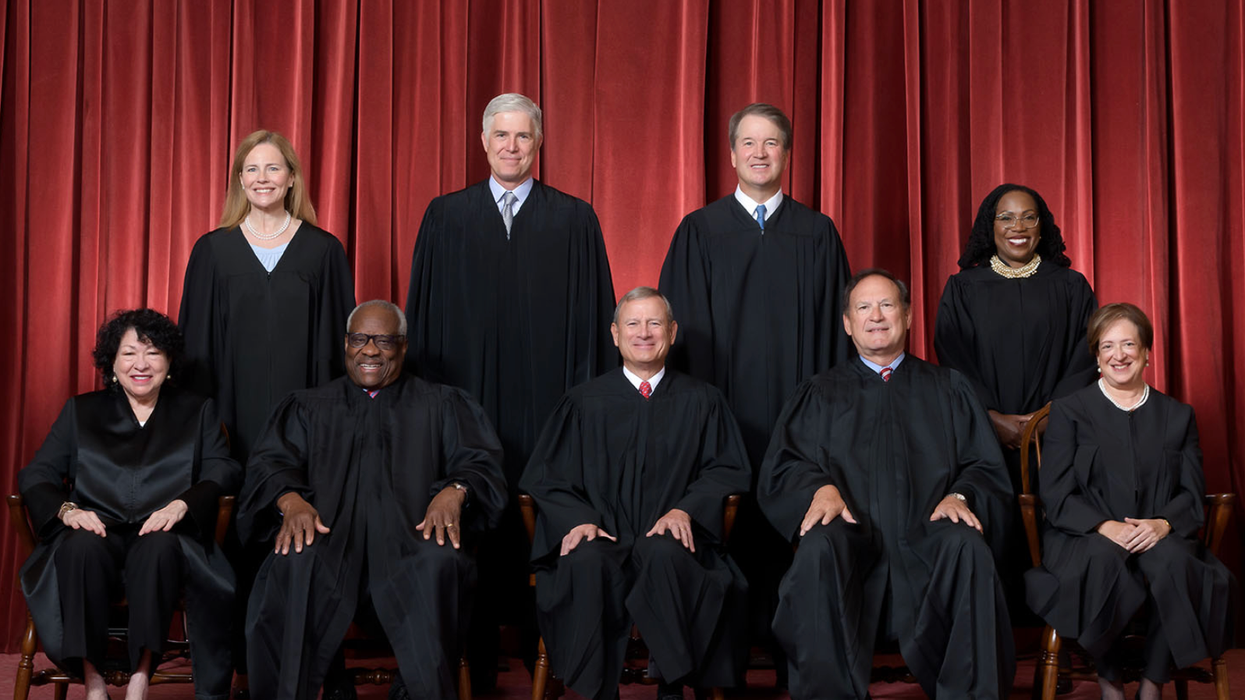Ex-GOP attorney general: Why Congress should establish Supreme Court term limits

Supreme Court 2022, Image via Fred Schilling, Collection of the Supreme Court of the United States.
May 03, 2023 | 12:45PM ETBank
The ongoing ethics scandals plaguing the United States Supreme Court have ignited debate and triggered Senate hearings over how the nine justices can be held accountable to the American people. Unlike other elected and bureaucratic bodies, the Supreme Court is unbeholden to oversight and has historically been entrusted to self-police.
The recent wave of corruption allegations and perceived conflicts of interest are generating a new push for accountability. Tuesday's Senate Judiciary hearing, in which Chief Justice John Roberts sternly refused to participate, could be a critical early step toward establishing ethical boundaries and repairing public trust.
On Wednesday, opinion columnist Jim Jones of The Hill reinvigorated a possible solution — imposing term limits.
READ MORE: The Supreme Court is 'determined' to 'defy ethical accountability': journalist
"The framers required 'good behavior' from judges in order to retain their high office, but provided no means of bringing them to account, other than impeachment," Jones, a Republican former Idaho attorney general and Supreme Court justice, explains. "Those public-minded patriots could not have envisioned the fierce partisanship that divides the country today, rendering impeachment of judges, even for gross misconduct, a practical impossibility. Nor could the framers have contemplated that the average life expectancy of Americans would now more than double the 34.5 years of age at the time the Constitution was written or that justices would cling to their seats until the onset of senility."
Jones believes that "longevity in these exalted positions of unchecked power often breeds arrogance, a sense of entitlement and political activism. We have witnessed too many instances in recent years where SCOTUS members have misused their positions to advance the interests of their political friends."
Specifically, Jones targets Associate Justices Clarence Thomas, Samuel Alito, and Roberts, who have been on the bench for thirty-one, seventeen, and eighteen years, respectively. Each jurist, Jones contends, has developed "a sense of entitlement" and "arrogance" that "make a compelling case for dramatic reforms to this vitally important American institution."
Jones also notes that while "67 percent of Americans (82 percent of Democrats and 57 percent of Republicans) support term limits for these unaccountable officials," the responsibility ultimately lies with Congress to "enact legislation to limit SCOTUS members to a maximum term of active service of 18 years and then switch them to senior status for as long as they wish." Emeritus justices, Jones opines, could run interference to prevent corruption and step in if and when current justices feel the need to recuse themselves.
READ MORE: Biden has a game plan for getting federal judges confirmed: report
Jones' full editorial continues here.